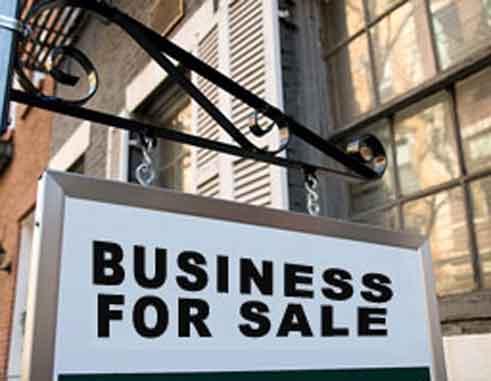By Samuel Rosenberg
MAKING the decision to sell your business is an extremely difficult and emotional choice. You may be bored with running your company, profits may be too low, or you have reached the age at which you wish to retire. The most important judgement about when to sell your business is when you are completely in charge of your decision – so that you can achieve the best value while meeting your own personal target of the best time to sell.
Selling your business should be part of a well thought out plan and not a decision taken on a particularly terrible day.
There are many factors that you will consider as you reflect on whether you should sell or attempt to retain your business for another year or two.
Customer’s choices change. A thriving business one year may be out of favour the next. Technology changes even quicker. Your business may no longer sell products or services that your customers require.
When your business isn’t making sufficient money, it may also have a limited value. Competition may be shrinking your customer numbers. The timing to sell your business is vital because its value may be rapidly reducing if your profits are falling or your losses are increasing.
Where you are unable to sell your business, you may need to consider a closing down sale to clear all of your stock and raise a few dollars. This may be a better option than closing your doors forever, and walking away without any funds.
Where your business possesses a proprietary idea and especially if this is protected by patents and other legal methods, you may be able to sell a business that a new owner can easily promote.
You may operate a strong brand, known to your community or a larger area, which will make your business an attractive purchase. A strong and active client base will also help you compete for a higher valuation.
Where possible, it is better to plan to sell your business at least two years ahead. This puts you in control of choosing the right time, valuation and process. You will consider your personal finances within the same plan, as your income may disappear or be replaced by a pension or from the proceeds of the sale.
By thinking ahead, you will know if you are able to invest in technological changes that will keep your current business ahead of the marketplace or choose a time relevant to you to sell your business. This applies when you cannot or will not make the investments required to be able to operate efficiently and effectively through the coming years.
The new owner of your business may want you to stay on when your customers see you – as the business, to help through the changeover period. You may move to a consulting role for short period of time. Offering this option may add value to the sale of your business.
By careful planning and choosing the right professionals to help you sell, you will help achieve the highest possible valuation for your business. You will also understand about potential deal breakers and how you may become flexible or not in resolving any issues so you can close a transaction and move on to your next venture or a successful and long-term retirement.
––––––––––––––––––––––––––––––Samuel Rosenberg is the founder and CEO of Axcel Finance Ltd., the leading regional microfinance institution. Share your thoughts and email your questions to srosenberg@axcelfinance.com






![Simón Bolívar - Liberator of the Americas [Photo credit: Venezuelan Embassy]](https://thevoiceslu.com/wp-content/uploads/2025/12/Simon-Bolivar-feat-2-380x250.jpg)






Blah, Blah, Blah. The great mayority of the people in St. Lucia are struggling to make ends meet. Tourist are spending very little beyond their all inclusive hotels. Roads are in bad shape.Government is almost in an unsustainable debt spiral. Crime is on the rise. Banks are in trouble as they have many defaulting loans. 1st National Bank made a mini profit of 354k last year and not paying any dividend to the shareholders. Piles of used cars for sale. Sky high prices in the supermarkets.